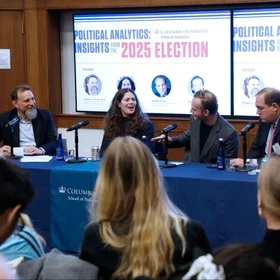While every organization is unique, every level in every organization does have a similar cast of characters. These are workplace archetypes that populate the tech staff of a small software start-up, the teachers in a suburban middle school, and the directors of a multimillion-dollar business. You’ll recognize these people as individuals you’re working with now or worked with in the past. You might also recognize some of these character traits in people with whom you have personal relationships. And with some true self-reflection, you may even recognize some of these characteristics in yourself.
All these characters are basically good people. They, like everyone, are composites of their upbringing and past experiences at home and at work. I have found that most people are good, want to work hard, and want their organization to succeed. They only need guidance to help them overcome any unjustified fears or concerns about differences they might harbor, either consciously or subconsciously.
As you work to create and administer your DEIA initiatives, you have to work to address the interests of all stakeholders, just like you do when you are working to implement any new project. In my book, It's About You Too, I identify the 20 archetypes that are found in every workplace: yes, every workplace has a buck passer, a narcissistic, a saint, an alarmist and an enemy of change. But the good news is that's okay. Each of these personality traits can actually be positive and negative. The idea is is to identify who you are speaking to, and frame your initiatives in a way that is most appealing to them.
By way of example, consider how to approach Jessenia Cannon who is personally supportive of every effort, but she consistently raises objections that may potentially be voiced by others. “Who is going to tell the difficult client that his team leader will not be at their ribbon-cutting ceremony because it conflicts with his son’s school play? Who is going to tell the events manager that the traditional 11 a.m. boozy brunch has to be moved to 1 p.m. to accommodate employees who want to attend mass at noon?”
While Jessenia can be exhausting because no one can please everyone all of the time, she is an excellent source of advice for other members of the leadership team. Jessenia isn’t a spy, but her advanced insight on others is a great source of intelligence.
How you manage Jessenia when she raises potential obstacles to your initiatives? Ask for her help in dealing with whatever objection she is voicing. Ask what she thinks the reasons are for the other person’s objections. Ask for suggestions on how you might be able to overcome those objections. She’ll be glad to help. Yes, it’s like dealing with a child and their imaginary friend. But it’s likely to work.
The book I’ve written, It's About You Too, addresses how to work most effectively with Jessenia Cannon (as well as 19 other personalities) on a broad range of projects related to inclusivity. You may have the most comprehensive and well-intentioned plans to diversify your workplace and established culture that supports inclusion, but you will need your employee's support across the organization to make it happen, so it only makes sense to understand the root causes of potential resistance and work to address them.



